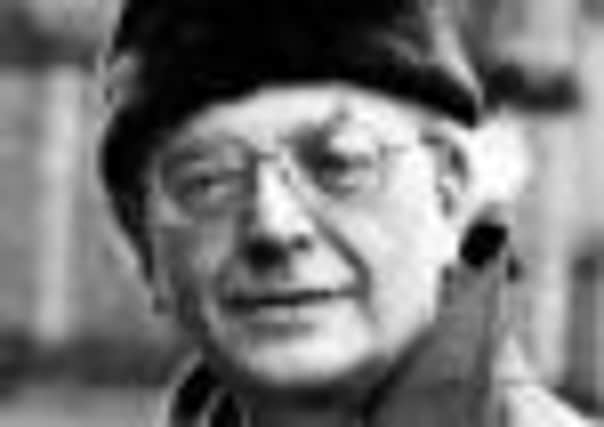Obituary: Philip Crosfield, 88


Philip Crosfield was born in London, but moved to Edinburgh at the age of eight and attended George Watson’s College.
The Second World War broke out when Philip was 15. He joined the army at 18 after serving in his school’s officer training corps and spending six months studying science and engineering at Glasgow University.
Advertisement
Hide AdAdvertisement
Hide AdAt the age of 19, Philip was posted to 13 Medium Regiment, Royal Artillery, and set sail for Normandy in the heat of Operation Overlord. He was known for raising the morale of his fellow gunners, organising entertainment or just providing it with his antics.
He also saw action at the Battle of the Bulge in the Ardennes – Germany’s last offensive through Belgium in December 1944 – the operation to cross the Rhine, and the push east through Germany.
He was witness to emotional scenes as emaciated concentration camp inmates were liberated.
Following the war, Philip travelled to Bombay to teach field gunnery to a Royal Indian Artillery Regiment. He was demobbed in November 1946 and returned home to Scotland.
Advertisement
Hide AdAdvertisement
Hide AdThe violence of war did not affect his lifelong vocation for the priesthood and, soon after his return, he continued his education at the Scottish Episcopal Church’s theological college in Edinburgh.
He followed this with a prestigious place at Selwyn College, Cambridge, where he studied theology and graduated with a first in 1951. He began his theological career with a post as curate at St David’s in Pilton.
In 1953, he because curate of St Andrews Church and Anglican chaplain of the town’s university. There, he met Anglican Society president Sue Martin, whom he married in 1956.
He followed this with a five-year tenure as rector of St Cuthbert’s in Hawick, and then chaplaincy at Gordonstoun School.
Advertisement
Hide AdAdvertisement
Hide AdFinally, he returned to Edinburgh to take up a position as vice-provost of St Mary’s Cathedral. Two years later, in 1968, he was appointed provost, a position he held for 20 years.
It was in this role that Philip’s passionate belief in community causes came to the fore. When the cathedral choir was threatened with closure, he rescued it by setting up a music school and introducing female choristers in 1976 – a first for a UK Anglican church. He also founded the cathedral workshop, through which many young and unemployed apprentices managed to gain stonemasonry experience and skills.
Philip retired in 1990 and was awarded an OBE for services to music. He moved to Silverburn from where he enjoyed gardening and hill-walking.
Philip – who died earlier this month aged 88 – is survived by Sue, children Fiona, Maggie, and Paul, and four grandchildren.